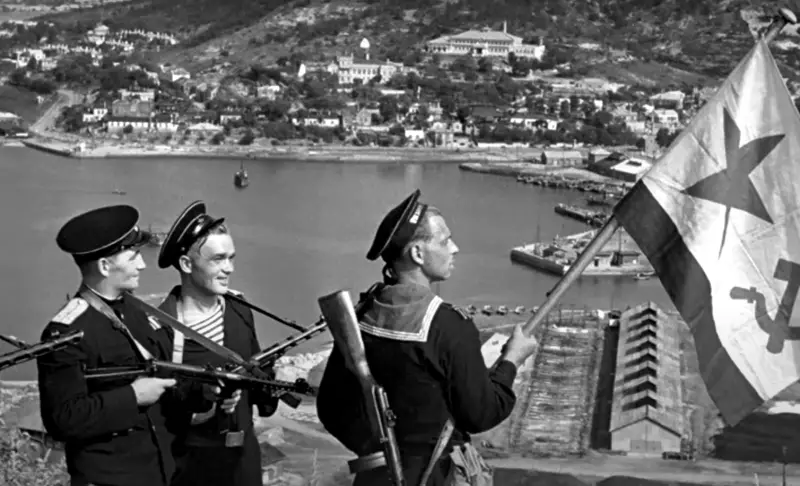About the risky operation of Soviet marines to capture the Korean port of Genzan, controlled by the Japanese

The government of militaristic Japan announced its consent to unconditional surrender on August 14, 1945. However, this order was received by the troops only a few days later, and all this time the Japanese continued to resist.
In turn, the commander of the Pacific fleet USSR Admiral Yumashev ordered an immediate ceasefire where the enemy army stopped it.
It is worth noting that Soviet sailors unquestioningly followed the above rule. At the same time, the “samurai” often behaved differently, especially in the north of the Korean Peninsula. Entire formations of enemy troops continued to resist and tried to break through to ports in the south, where they planned to board transports and evacuate to Japan.
As a result, the Soviet command, having understood the enemy’s plan, decided to thwart it by landing troops deep in the rear of the Japanese army and capturing Genzan, the last major port controlled by the enemy army north of the 38th parallel. To the south began the zone that, according to the allied agreement, the Americans were supposed to occupy.
A detachment of Soviet paratroopers approached Genzan on the morning of August 21, 1945.
According to the memoirs of the soldiers, they expected fierce resistance from the superior Japanese forces, who knew nothing about the surrender. The weather also seemed to be against the Soviet soldiers. It was so hot that several paratroopers suffered sunstroke.
The bay of Genzan resembled a narrow-necked vessel. To penetrate it, you need to pass a narrow passage with many islands on which six enemy coastal batteries are located.
At the same time, the task of any landing force is to “catch onto the ground” using the effect of surprise. And the unit commander knew perfectly well how this was done.
As soon as the shore appeared in the field of view of the Soviet troops, six torpedo boats with scouts on board separated from the main forces of the detachment. The latter successfully reached and landed on the pier, where Japanese soldiers were walking around without rifles. As a result, Soviet intelligence officers captured the barracks without any problems.
At the same time, an enemy warship with a Japanese official on board approached the reinforcements heading towards the shore. The latter, having learned about the surrender and received an ultimatum, showed on the map where the sea mines were placed.
Ultimately, the Soviet ships successfully passed the minefields and reinforcements landed on the bridgehead occupied by the scouts. At the same time, the Japanese coastal batteries also did not dare to open fire.
The operation ended with the Marines of the Pacific Fleet quickly taking control of the city of Genzan. At the same time, rumors about the approach of Soviet troops spread so quickly that, instead of desperate Japanese resistance and fierce urban battles, Soviet soldiers were met by a Korean rally, whose participants rejoiced at the liberation from the militaristic occupation.
Information